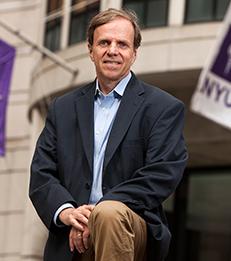Opinion
'Department Of Swagger' Fails First Test on Refugees
—


Rather than abandoning U.S. humanitarian leadership in the world, there is no more important place to apply American values than to our refugee admissions policy.
By Michael Posner
This week, Secretary of State Mike Pompeo announced a further retreat from U.S. leadership on refugee protection, reducing the cap on refugee admissions next year to 30,000. That’s down 80,000 from the last year of the Obama administration. Since the end of World War II, the U.S. has played a leading role protecting refugees, reflecting broad bipartisan support for policies that provided safe haven to those fleeing religious and political persecution. Government officials in both Republican and Democratic administrations have backed this program because it allows careful vetting of applicants for admission while they are still outside the U.S. and places an annual cap on the number who can be admitted.
In a brief statement attempting to justify the administration’s humanitarian retreat, Secretary of State Pompeo stressed that refugee-admission numbers are not the “sole barometer” of the administration’s commitment to humanitarian concerns. He rightly stated that the U.S. continues to provide generous financial support to the United Nations and various refugee relief organizations—more than any other country in the world.
But he was disingenuous at best when he sought to conflate the refugee-admission process with the challenges associated with a backlog in the processing of applications for political asylum. The latter are cases of people who have come into the U.S. as students, tourists, or with no visa at all. Once here, they have petitioned our government for permission to stay, asserting that they have a well-founded fear of persecution if they are forced to return to their home countries. U.S. immigration authorities routinely criticize the asylum process, saying that these people have “cut in line” and not followed the regular refugee-admission process. Now Secretary Pompeo and the administration are on the road to dismantling that process altogether.
Read the full Forbes article.
___
Michael Posner is a Professor of Business and Society and Director of the NYU Stern Center for Business and Human Rights.
In a brief statement attempting to justify the administration’s humanitarian retreat, Secretary of State Pompeo stressed that refugee-admission numbers are not the “sole barometer” of the administration’s commitment to humanitarian concerns. He rightly stated that the U.S. continues to provide generous financial support to the United Nations and various refugee relief organizations—more than any other country in the world.
But he was disingenuous at best when he sought to conflate the refugee-admission process with the challenges associated with a backlog in the processing of applications for political asylum. The latter are cases of people who have come into the U.S. as students, tourists, or with no visa at all. Once here, they have petitioned our government for permission to stay, asserting that they have a well-founded fear of persecution if they are forced to return to their home countries. U.S. immigration authorities routinely criticize the asylum process, saying that these people have “cut in line” and not followed the regular refugee-admission process. Now Secretary Pompeo and the administration are on the road to dismantling that process altogether.
Read the full Forbes article.
___
Michael Posner is a Professor of Business and Society and Director of the NYU Stern Center for Business and Human Rights.
